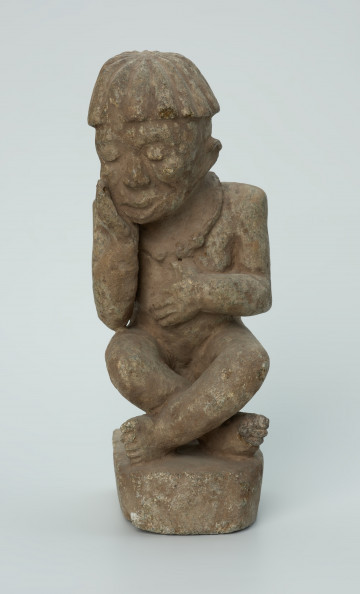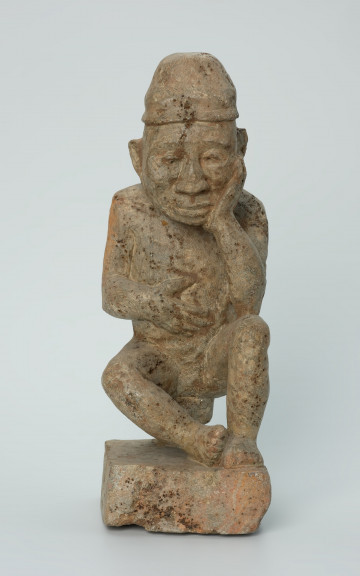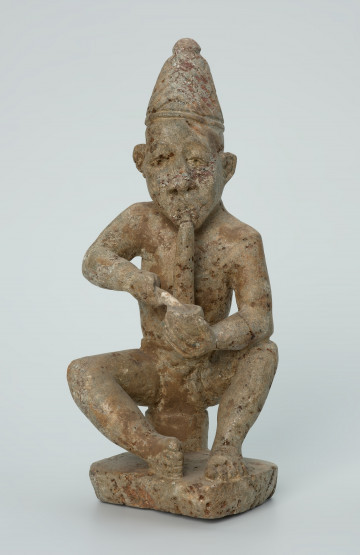
Ancestor worship figure
około 1901 — 2000
National Museum in Szczecin
Part of the collection: Mintadi figurines
The sculpture depicts the ruler or chief of Mfumu, who is usually depicted in a pose expressing reverie. He sits with his head slightly bowed, supported on the hand, with his eyes closed. Representations of this type are also called fumani, meaning thinkers. The ruler immortalised on the statue resides in eternity and governs the life ‘that lasts’, and he guarantees the support of supernatural forces for the community under his care. The artist who makes a sculpture does not aim to capture the resemblance to the real figure. The facial expressions and the sense of gestures are more important than faithful recreations of body proportions. Stylised hats, necklaces, knives and walking sticks define the dignity of the chief. Mintadi (singular ntadi) served primarily as tomb figures. They were used to decorate and protect the graves of rulers and royal dignitaries. They have not served magical purposes. Most mintadi are surrogates of a ruler still alive but temporarily absent and effigies of deceased chiefs. They are objects designed to ensure continuity and permanence of authority.
Katarzyna Findlik-Gawron
Author / creator
Dimensions
cały obiekt: height: 41 cm, width: 11,8 cm
Object type
sculpture
Creation time / dating
Creation / finding place
Identification number
Location / status

około 1901 — 2000
National Museum in Szczecin

około 1901 — 1950
National Museum in Szczecin

około 1901 — 2000
National Museum in Szczecin
DISCOVER this TOPIC
Museum of King Jan III's Palace at Wilanów
DISCOVER this PATH
Educational path